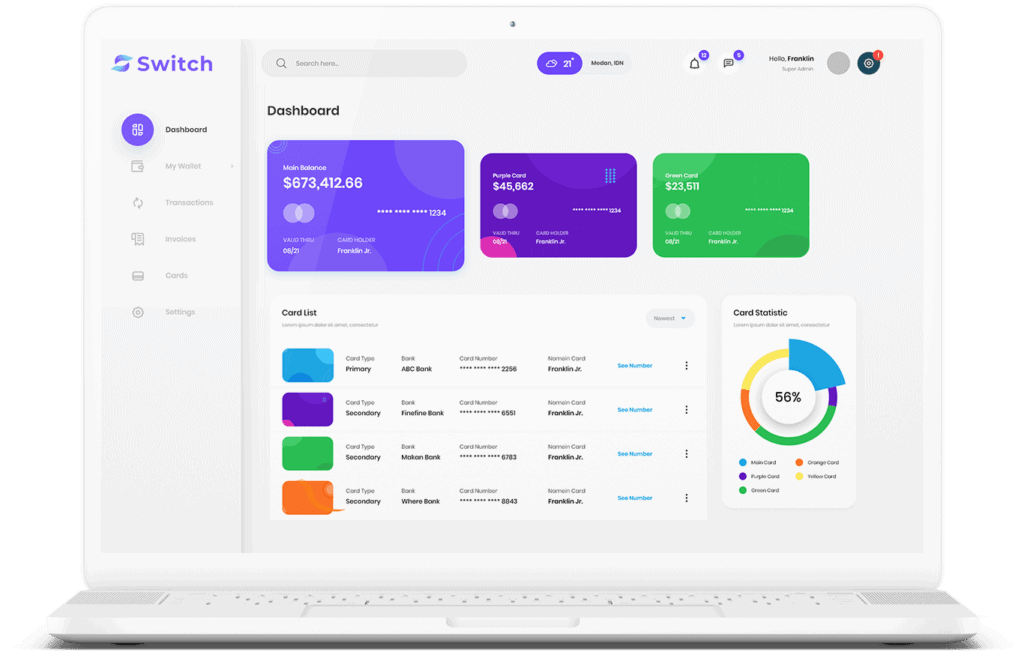Oftentimes, burgeoning startups become consumed with the development of their products or services, the creation of their personas, and the exploration of their target subjects. However, one crucial aspect that is often overlooked is strategic keyword research. This critical component can make or break a startup’s online presence, impacting its visibility, traffic, and ultimately, their success. With the right approach to keyword research, startups can effectively position themselves in the digital landscape and ensure that their offering reaches the right audience.
Strategic keyword research allows startups to gain invaluable insights into the search behavior of their potential customers, enabling them to tailor their content and offerings to align with what their audience is actively seeking. By prioritizing this research, startups can optimize their website for search engines, increase their organic traffic, and stay ahead of the competition. In this blog post, we will delve into the reasons why every startup should prioritize strategic keyword research and how it can significantly impact their overall growth and success.
Key Takeaways:
- Visibility: Strategic keyword research helps startups to identify the most relevant keywords that potential customers are using to search for products or services, increasing the chances of appearing on search engine results pages.
- Competitive Edge: By conducting thorough keyword research, startups can gain insights into their competitors’ strategies and find valuable keywords that are not being targeted by others in the industry, allowing them to stand out and attract more organic traffic.
- ROI: Prioritizing strategic keyword research enables startups to invest their resources in the right areas, focusing on high-converting keywords that are more likely to generate leads and sales, ultimately maximizing their return on investment in marketing efforts.
Understanding Keywords
Any successful digital marketing strategy begins with a solid understanding of keywords. Keywords are the foundation of search engine optimization (SEO) and play a crucial role in driving organic traffic to a website. By conducting strategic keyword research, startups can gain valuable insights into what their target audience is searching for online and use this knowledge to optimize their content and attract more qualified leads.
Definition of Keywords and Key Phrases
Phrases or individual words that capture the essence of a topic are known as keywords. These are the terms that users enter into search engines when looking for specific information, products, or services. Key phrases, on the other hand, are longer combinations of words that provide more specific and targeted search results. By understanding these definitions, startups can effectively tailor their content to match the search intent of their potential customers, thereby increasing their visibility and relevance in search engine results.
Types of Keywords: Short-Tail vs Long-Tail
Short-tail keywords are brief and broad terms that typically consist of one to three words. They are highly competitive and can attract a large volume of traffic, but may not necessarily bring in the most relevant audience. Long-tail keywords, on the other hand, are longer and more specific phrases that target a niche audience. This type of keyword usually has less competition and can attract more qualified leads. Perceiving the differences between these two types is crucial for startups to develop a keyword strategy that aligns with their specific business objectives.
- Short-tail keywords attract high-traffic volume
- Long-tail keywords target niche audiences
- Short-tail keywords are highly competitive
- Long-tail keywords have lower competition
- Long-tail keywords attract more qualified leads
Plus, incorporating a mix of short-tail and long-tail keywords in a startup’s content strategy can help improve their overall search engine rankings and increase their online visibility. By targeting a combination of these keywords, startups can reach a broader range of potential customers while ensuring that they are attracting the most relevant traffic to their website.
Initial Steps in Keyword Research
The foundation of any successful keyword research strategy is a strong understanding of your target audience and the tools and resources available to help you discover the most relevant keywords for your startup’s products or services.
Identifying Your Niche and Target Audience
To begin with, it’s essential to identify the niche market that your startup operates within and the specific audience you want to reach. This involves understanding the personas of your potential customers and the subjects they are interested in. By gaining a deep understanding of your niche and target audience, you can tailor your keyword research to focus on the terms and phrases that are most relevant to them.
At the same time, it’s important to recognize the search habits of your target audience and the keywords they are likely to use when searching for products or services like yours. By honing in on these specific keywords, you can ensure that you are targeting the right audience and increasing the chances of your startup being discovered by potential customers.
Tools and Resources for Keyword Discovery
Targeted keyword discovery often involves the use of specialized tools and resources that can help you identify the most relevant keywords for your startup. These tools can include keyword research platforms, search engine optimization (SEO) software, and analytics tools that can provide valuable insight into the most popular and effective keywords for your industry.
This process also involves conducting competitor analysis to see which keywords are performing well for other startups in your niche. By leveraging these tools and resources, you can gain a comprehensive understanding of the keywords that are most valuable to your startup and its target audience. This, in turn, can inform your content strategy and help drive relevant traffic to your website.
Analyzing Competitors
Your startup’s success depends on how well you understand and outperform your competitors. Analyzing your competitors’ keyword strategy can provide valuable insights into their online marketing efforts, helping you identify opportunities to gain a competitive edge in your industry.
How to Conduct a Competitor Keyword Analysis
With the abundance of tools available, conducting a competitor keyword analysis has never been easier. Start by identifying your main competitors and analyzing their website content, meta tags, and backlink profiles to uncover the keywords they are targeting. Utilize tools like SEMrush, Ahrefs, or Moz to gather data on your competitors’ top performing keywords, their search volume, and the organic traffic they generate. This will help you understand the keywords that are driving traffic to their website and identify potential keyword opportunities for your own startup.
With this information, you can further analyze the competitiveness of these keywords and prioritize which ones to target in your own SEO strategy. By understanding your competitors’ keyword strategy, you can gain valuable insights into the keywords that are driving their success and optimize your own keyword targeting to outperform them in search engine rankings.
Leveraging Competitor Insights for Strategic Advantage
Keyword research isn’t just about improving your own SEO strategy, it’s also about leveraging competitor insights to gain a strategic advantage. By understanding the keywords that your competitors are targeting, you can identify gaps in their strategy and capitalize on opportunities to target keywords that they may be overlooking. Leveraging these insights can help you outmaneuver your competitors and gain a stronger foothold in the online market for your products and personas.
Keyword Relevance and Intent
Not all keywords are created equal. When it comes to strategic keyword research, it’s essential to prioritize relevance and intent over sheer volume. Understanding the intent behind a user’s search query is crucial for startups looking to drive targeted traffic to their website.
Matching Keywords to User Intent
One of the key aspects of strategic keyword research is matching keywords to user intent. This means identifying the specific intent behind a user’s search query and creating content that aligns with that intent. By doing so, startups can attract users who are more likely to engage with their content and ultimately convert into leads or customers.
The Role of Keywords in the Buying Cycle
With the role of keywords in the buying cycle, startups can optimize their content to target users at every stage of the buying process. From awareness and consideration to the decision-making stage, strategically chosen keywords can guide potential customers through the sales funnel, ultimately leading to higher conversion rates and increased revenue. The use of transactional keywords, such as “buy now” or “free shipping,” can further drive purchasing intent and increase the likelihood of a sale.
Keyword Optimization Strategies
Unlike generic SEO strategies, keyword optimization focuses specifically on targeting the most relevant and high-performing keywords for your startup. This involves conducting thorough research to identify the keywords that your target audience is using to search for products or services similar to yours. By strategically incorporating these keywords into your website and content, you can increase visibility and drive targeted traffic to your startup.
On-Page SEO Best Practices
Best practices for on-page SEO include optimizing title tags, meta descriptions, and headers with your target keywords. It’s also important to strategically place keywords throughout your content, without overstuffing, to ensure a natural and seamless user experience. Additionally, optimizing image alt text and internal linking with relevant anchor text can further enhance the on-page SEO of your startup’s website.
Content Optimization for Keyword Relevance
One of the most important aspects of content optimization for keyword relevance is creating high-quality, valuable content that naturally incorporates your target keywords. It’s essential to prioritize user intent and provide informative, engaging content that addresses the needs and interests of your target audience while strategically incorporating relevant keywords. Additionally, updating and refreshing existing content with new keywords and information can further boost its relevance and performance.
It is crucial to strike a balance between keyword optimization and providing valuable, engaging content for your audience. Doing so will not only enhance your startup’s visibility and search engine rankings, but also improve overall user experience and drive meaningful engagement with your target personas.
Tracking and Measuring Keyword Performance
Keep track of the performance of your chosen keywords is essential for the success of your startup’s online presence. By monitoring and measuring keyword performance, you can gain valuable insights into what is and isn’t working in your SEO strategy, allowing you to make data-driven decisions for improvement.
Key Metrics for Monitoring Keyword Success
An important aspect of keyword performance tracking is to monitor key metrics such as search volume, click-through rate (CTR), conversion rate, and keyword ranking. These metrics provide valuable information about the effectiveness of your chosen keywords and their impact on your website’s traffic and lead generation. By analyzing these metrics, you can identify high-performing keywords and optimize your content for better performance.
Another key metric to monitor is the competitive landscape for your targeted keywords. By understanding the level of competition for specific keywords, you can make informed decisions about which keywords to prioritize and how to position your products or services in the market. Additionally, tracking long-tail keywords and their performance can also provide insights into specific niche markets and customer preferences.
Adjusting Your Strategy Based on Performance Data
Success in keyword research and SEO strategy requires constant adjustment based on performance data. By analyzing the performance metrics of your chosen keywords, you can refine your keyword strategy to align with your business goals and target audience. Keyword performance data can guide you in identifying opportunities for new keyword targets, refining existing content, and creating new content to address customer needs.
Keyword performance data also provides insight into user intent, which is crucial for understanding how potential customers search for products or services online. By leveraging this data, you can tailor your content to better meet the needs and interests of your target personas, ultimately driving higher engagement and conversions. Adjusting your strategy based on keyword performance data can lead to improved visibility, traffic, and leads for your startup.
Advanced Techniques in Keyword Research
Despite the increasing competition in the digital landscape, startups can leverage advanced techniques in keyword research to gain a competitive edge and reach their target audience effectively. Here are some advanced techniques that can be employed:
- Utilizing long-tail keywords for niche targeting
- Integrating keywords with overall content strategy
- Utilizing keyword variations and synonyms
- Conducting competitive keyword analysis
Utilizing Long-Tail Keywords for Niche Targeting
Keywords play a crucial role in determining the specificity and relevance of the content. By utilizing long-tail keywords, startups can effectively target niche audiences and cater to their specific needs. Long-tail keywords often have lower search volumes but higher conversion rates, making them an essential component of a startup’s keyword strategy. By identifying long-tail keywords relevant to their products, startups can drive highly targeted traffic to their websites and improve their overall conversion rates.
Integrating Keywords with Overall Content Strategy
An effective content strategy is incomplete without the integration of relevant keywords. By strategically incorporating keywords into their content, startups can optimize their website for search engines and improve their visibility to potential customers. This integration ensures that the content remains relevant and valuable to both search engines and users, ultimately contributing to a higher ranking in search results and increased organic traffic. Startups can also leverage keywords to create a consistent brand voice and messaging across their digital platforms, fostering a cohesive and impactful online presence.
Niche targeting is a critical aspect of a startup’s overall content strategy. By integrating relevant long-tail keywords into their content, startups can tailor their messaging to specific personas, products, and subjects, thereby enhancing the overall effectiveness of their digital marketing efforts. By aligning their keywords with the interests and needs of niche audiences, startups can establish themselves as authorities in their respective industries and build a loyal customer base.
The Importance of Strategic Keyword Research for Startups
The importance of strategic keyword research for startups cannot be overstated. By prioritizing this crucial aspect of online marketing, startups can gain a competitive edge in an oversaturated digital landscape. Understanding the language and search terms potential customers use is essential for optimizing website content, driving traffic, and ultimately converting leads to sales. Without strategic keyword research, startups risk missing out on vital opportunities to increase their online visibility and attract the right audience.
Furthermore, strategic keyword research enables startups to effectively craft a targeted digital marketing strategy. By identifying the most relevant and high-traffic keywords, startups can tailor their content, SEO efforts, and paid advertising to reach their ideal customer base. With a deep understanding of their target audience’s search habits, startups can position themselves as industry leaders and connect with potential customers at the precise moment they are seeking their products or services. In conclusion, strategic keyword research is an invaluable tool for startups looking to establish a strong online presence and drive sustainable growth in the digital marketplace.










